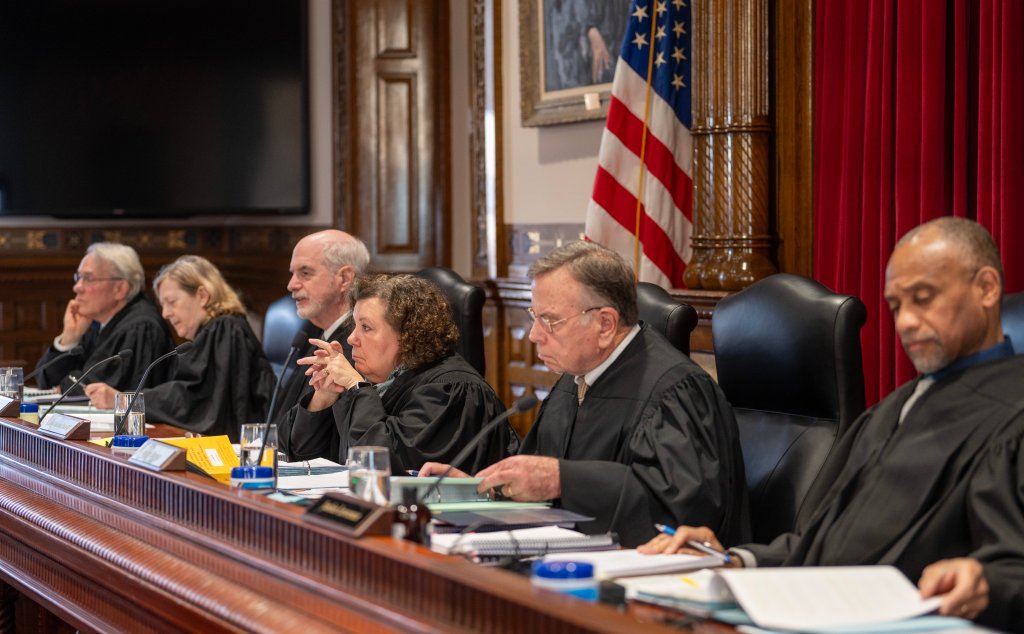Pennsylvania
Home schooling a strong option in Pennsylvania, North Allegheny area

There’s been a steady growth of homeschooling in the North Allegheny School District, according to a report presented to the school board.
“Homeschooling did increase significantly during the COVID-19 pandemic, and remaining at its highest level we’ve seen while other enrollment levels have re-balanced,” said Yuko Wong, data manager at NASD, who presented the report Oct. 25.
In 2010, there were 99 NA students who were home schooled. In 2020, that number jumped to 133. In 2021, the number of home-schooled students was 137. In 2022, the number dropped slightly to 136, and in 2023, there are 140 home-schooled students.
Statewide, home-schooled student enrollment was 25,979 from 2019 to 2020, according to a November 2022 report by Thomas J. Dubbs, with the state Department of Education’s School Services Office. From 2020 to 2021, enrollment jumped to 41,483. The data for 2021 to 2022 show decline to 39,846.
These numbers reflect students, ages 5 to 21, who finish the school year in a home-school program.
School districts are responsible for tracking data about home-schooled students and must provide that data to the state Department of Education annually, said Taj Magruder, spokesman for the department.
“However, that data does not include information about why a student is being home schooled. PDE’s historical data show that the number of home-schooled students increased significantly during the COVID-19 pandemic, but we cannot speak to why individual students or families choose home schooling,” he said.
Homeschooling is defined as education being directed by a parent, guardian or someone in legal custody, according to the Department of Education.
Laura Tames, of the Fox Chapel Area School District, transitioned to homeschooling during the pandemic when her son was in elementary school. But when communities started to return to pre-pandemic schooling, she said she gave him a choice of where to go and he “wholeheartedly wanted to homeschool.”
“For our family, it is a wonderful fit — we are learning and growing together. I love getting to be a part of what my kids are learning, allowing them to proceed at their own paces, diving deep into their specific interests, and having the flexibility to make plans as a family that aren’t dependent on a strict school schedule,” Tames said.
She said her daughter, 5, also chose to homeschool.
Pine-Richland’s homeschooling increased during the pandemic, but is exactly at the same level as last year, said Erin Hassinger, spokeswoman for the Pine-Richland district.
The state statistic report also revealed that enrollment of privately tutored students in 2019-2020 stood at 831, and increased to 1,283 in 2020 to 2021 and to 1,306 in 2021 to 2022.
Home schooled and privately tutored students account for less than 3 percent of total student enrollment in the state for ages 5 to 21.
The state report shows that Allegheny County ranks third in the state for highest numbers of home-schooled students for 2021-2022. Lancaster stood first and then York at second.
The October NA report also showed that parochial and private school student enrollment has dropped this year. This includes those students who attend a nonpublic school in the district. The enrollment here was 761 in 2021, 770 in 2022, and 630 in 2023.
Cyber and charter school student was at its highest in 2020 at 166 and is now 96 in 2023. Cyber and charter school tuition is paid by North Allegheny.
Natalie Beneviat is a Trib Total Media contributing writer.

Pennsylvania
Books and coffee? Both shine at Pressed in Erie, Pennsylvania

Independent bookstores are the heartbeats of their communities. They provide culture and community, generate local jobs and sales tax revenue, promote literacy and education, champion and center diverse and new authors, connect readers to books in a personal and authentic way, and actively support the right to read and access to books in their communities.
Each week we profile an independent bookstore, sharing what makes each one special and getting their expert and unique book recommendations.
This week we have Pressed in Erie, Pennsylvania!
What’s your store’s story?
Founded in Erie, Pennsylvania in 2018, our goal is to encourage others to step away from their device and enjoy the feel, smell, and look of a book, paired with a comforting coffee. We love it when customers take their time checking out what’s new (or old!), and have a lovely time reconnecting with their senses as they explore the books and gifts in our shop.
What makes your independent bookstore unique?
Customers love the vibe in our store. It’s modern and upbeat, but with good old-fashioned books in the spotlight! They’re encouraged to take their coffee or warm drink (from our full-service coffee shop) and explore.
We’re known for a curated but wide variety of reading genres, along with fun literary gifts (staff take real pleasure in hearing customers laugh out loud as they peruse the store), as well as our large kids’ area, with our famous reading tree. We’re proud to do our part to make Erie a vibrant and interesting city, something more than just a cluster of big-box stores.
What’s your favorite section in your store?
My favorite section is the front, where all the best displays are and where we greet our customers. But a close second is the kids’ room — the reading tree and the moss-covered cobblestone look of the carpet are so inviting!
Why is shopping at local, independent bookstores important?
People vote for what they want in their community with their dollars. If they like having indie bookstores in their town, they simply must spend money there. Spending money elsewhere is exactly like submitting a vote for the indie to close. As long as people understand what they’re doing when they choose not to shop local, I have no problem with it. But if people want that local shop to stay, because it adds value and personality to their town and because they enjoy shopping there, they have to be okay with spending a few extra dollars on a book there. That’s the bottom line.
Check out these books recommended from Pressed owner, Tracey Bowes:
- “Z: A Novel of Zelda Fitzgerald” by Therese Anne Fowler. It’s a page turner, well-written, entertaining and informative, and often hasn’t yet been read.
- “We Should All Be Feminists” by Chimamanda Ngozi Adichie
- “The Women” by Kristin Hannah
- “The Fury” by Alex Michaelides
Pennsylvania
Criminal charges for climate pollution? Some argue a Pa. law would apply

While Braman agrees it would be difficult to take on as a prosecutor, he said that could change as more young people move into positions of influence.
“As the catastrophes escalate and as young people who face their entire future in an environment dominated by increasing climate harms, [and] start to join the jury pool, start to become prosecutors, start to become judges and start to become shareholders, I think that the writing’s on the wall,” Braman said, “and I hope that everybody, including everyone inside fossil fuel companies, starts to pay attention to that.”
But Weber said prosecutors would still have to convince a judge or jury to convict beyond a reasonable doubt.
Fossil fuel companies have permits to conduct their business, essentially government permission to do what they are doing, another way for the company to defend itself in court.
If the companies are charged and convicted of risking or causing a catastrophe, the fines are in the range of $15,000 to $25,000 per count, Weber said.
“Is that going to deter a multimillion dollar company? Is that going to interfere with the operation of their business and the money that they’re making? I don’t think so,” Weber said. “I mean, did Energy Transfer go out of business by that criminal prosecution?”
“Maybe you put the CEO in jail,” Weber said. “And do you think that the other fossil fuel companies are going to say, ‘That guy went to jail, so we shouldn’t do what we’re doing anymore’? No, they’re going to do what drug dealers do. Drug dealers say, ‘Well, that guy got caught for drug dealing because he’s stupid. We’re not stupid.’”
‘Win by losing’
Environmental attorney Rich Raiders said there are a lot of questions with the strategy, but says the article does serve an important purpose.
“The idea behind these articles isn’t necessarily to come to an answer, but to get people to start thinking about how to address a question. And in that respect, it does that and it does it well,” Raiders said.
Raiders represented homeowners who sued Energy Transfer over the Mariner East pipeline construction. He said a case like this would be a battle of the experts, but there are fundamental questions the article does not address about whether the charges would stick.
“What do you have to show responsible for climate change to meet the definition of a catastrophe?” Raiders said. “What is that level of threshold that you have to show before you can write a complaint that actually can survive objections? And how do you prove that it was the fossil fuel emissions caused by the marketing aspects of these companies to get you far enough that you can meet this definition? We don’t know.”
Raiders said the goal of this type of prosecution could be to get a large settlement, similar to what happened with the tobacco companies settlement or a previously proposed Sackler family settlement over opioids.
In that case, it makes sense to bring a case where you “win by losing.”
“And maybe that’s what a case like this does. It’s not necessarily to win the case, but it’s to move the needle,” Raiders said.
For example, he said it could get the legislature to take action. But it also requires someone willing to lose.
“I think this is an interesting discussion in the long term for how to get people to think about the problem,” Raiders said. “And as a thought piece it does have some merit. But will you see something like that filed in the next 12 months? No, not anytime soon.”
Braman, one of the co-authors of the piece, is more optimistic.
“We desperately need some kind of solution that will allow the public to hold these massive corporate criminal actors accountable and have them really address the harms that they’re generating,” he said.
Pennsylvania
Cash reward offered for information leading to Pennsylvania cold case homicide resolution

LEBANON COUNTY, Pa. (WHTM) — A cash reward is being offered for anyone who has information surrounding a 2021 cold case homicide in Lebanon County.
The $2,000 reward is for anyone who has information that can solve the case of the death of 35-year-old Zachary Lauderman, according to State Police.
Lauderman was found dead with two gunshot wounds to his head in his home, located along Ulsh lane in Bethel Township Sept. 10 just before 3 p.m., according to Troopers.
Anyone who knows something is asked to contact PSP Tips at 1-800-4PA-TIPS (8477), or they can go online to submit a tip by clicking here.
-

 Business1 week ago
Business1 week agoThese are the top 7 issues facing the struggling restaurant industry in 2025
-

 Culture1 week ago
Culture1 week agoThe 25 worst losses in college football history, including Baylor’s 2024 entry at Colorado
-

 Sports1 week ago
Sports1 week agoThe top out-of-contract players available as free transfers: Kimmich, De Bruyne, Van Dijk…
-

 Politics1 week ago
Politics1 week agoNew Orleans attacker had 'remote detonator' for explosives in French Quarter, Biden says
-

 Politics1 week ago
Politics1 week agoCarter's judicial picks reshaped the federal bench across the country
-

 Politics6 days ago
Politics6 days agoWho Are the Recipients of the Presidential Medal of Freedom?
-

 Health5 days ago
Health5 days agoOzempic ‘microdosing’ is the new weight-loss trend: Should you try it?
-

 World1 week ago
World1 week agoIvory Coast says French troops to leave country after decades















